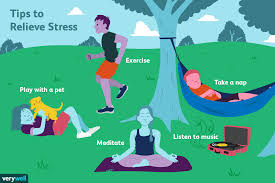Experiencing stress is a natural part of life. While it’s impossible to eliminate stress entirely, learning how to cope with it is essential. In this article, we explore the best stress management techniques that can help you feel calmer, more focused, and healthier.
Why Managing Stress is Essential
Managing stress is crucial for maintaining both physical and mental health. Chronic stress is linked to serious conditions such as:
- Heart disease
- Hypertension
- Obesity
- Anxiety and depression
- Weakened immune function
By adopting effective stress management techniques, individuals can reduce these risks, improve longevity, and enhance overall well-being. Stress management also helps maintain sharper cognitive skills, boosts energy levels, improves sleep quality, and prevents burnout, promoting a healthier work-life balance.
Top Stress Management Techniques
Effectively managing stress often requires a combination of strategies rather than relying on a single method. Here are some of the best stress management techniques you can practice:
1. Meditation and Mindfulness
Meditation is one of the most effective ways to relieve stress quickly. Mindfulness meditation or repeating mantras helps you focus on the present moment, reducing anxiety and negative thought patterns. Practicing deep breathing exercises can also calm the mind and lower stress levels.
2. Progressive Muscle Relaxation
This technique involves tensing and relaxing different muscle groups in your body. It helps you recognize physical tension and release it more effectively, promoting relaxation and mental clarity.
3. Physical Activity
Regular exercise is a powerful stress reliever. Walking, jogging, yoga, or other sports release endorphins that improve mood and reduce stress. Even a short daily walk can boost mental and physical well-being.
4. Balanced Diet and Supplements
Nutrition plays a vital role in stress resilience. Eating a balanced diet helps maintain energy levels and regulate mood. Certain supplements, like melatonin, ashwagandha, L-theanine, or B vitamins, may also support stress reduction.
5. Gratitude Practice
Expressing gratitude can significantly reduce stress. Keeping a gratitude journal and noting things you are thankful for helps shift focus from problems to positive aspects of life, improving emotional well-being.
6. Time Management and Task Prioritization
Reducing workload, prioritizing tasks, and setting realistic goals can prevent feelings of overwhelm. Managing time effectively allows you to navigate responsibilities more smoothly, reducing stress.

7. Social Support and Healthy Lifestyle Habits
Connecting with friends, family, or support groups helps buffer stress. Maintaining healthy lifestyle habits such as adequate sleep, avoiding excessive caffeine, and engaging in enjoyable activities further enhances resilience.
Conclusion
Stress management is vital for maintaining overall health in our fast-paced world. By incorporating the best stress management techniques—including meditation, physical activity, proper nutrition, gratitude, and time management—you can reduce stress levels, improve your well-being, and build resilience against daily challenges.
Remember, finding the right combination of techniques may take time. Consistency and integration into daily routines are key to achieving long-term benefits and improving your quality of life.





